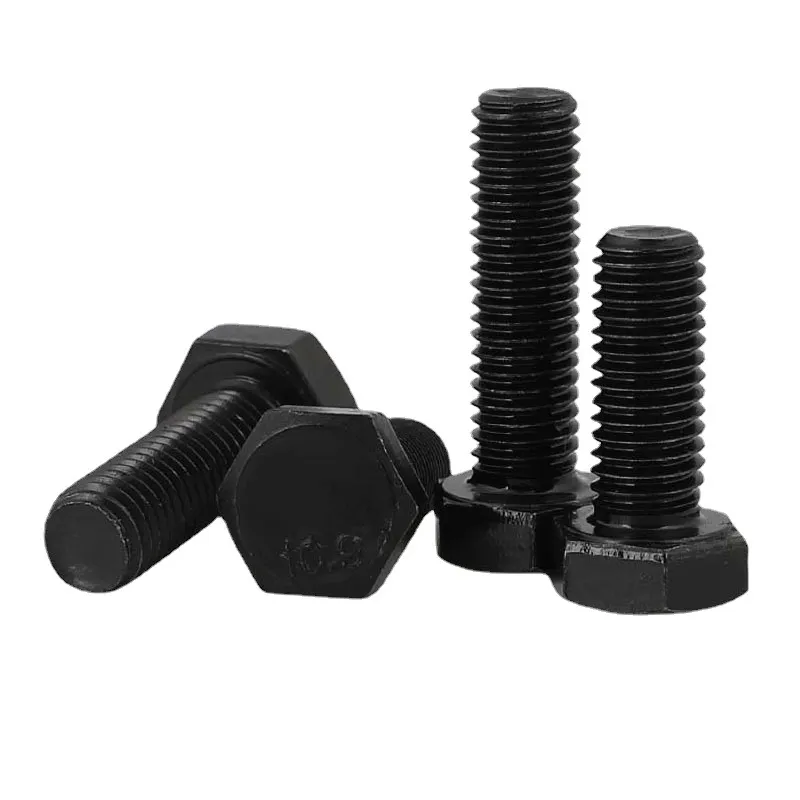

fastener material
Jan . 14, 2025 10:05 Back to list
fastener material
Fasteners are integral components in various industries, serving as the backbone for joining parts together to create finished products. Choosing the right fastener material is critical for ensuring the longevity and reliability of any project, whether it be in construction, automotive, aerospace, or consumer electronics. The selection process is not merely about strength but also about considering the specific environmental and operational conditions that the fastener will endure.
Plastic fasteners, while not suitable for heavy-duty applications, offer advantages in electrical and electronic industries due to their insulating properties and resistance to corrosion. Nylon and polypropylene are often used in applications where weight reduction is critical and where they won't be subjected to extensive mechanical stress. Understanding the manufacturing processes used to produce fasteners can also provide insight into their suitability for specific applications. Cold heading is a common method for producing steel fasteners, resulting in a stronger and more precise product compared to machining, which is a more flexible but costly alternative. These processes play a vital role in determining the overall performance characteristics of the fastener. Selecting the appropriate fastener material extends beyond matching the mechanical properties with application requirements. It's equally important to consider compliance with industry standards and regulations. In sectors like aerospace and automotive, adherence to strict quality standards is non-negotiable to ensure safety and performance. Ultimately, the decision of which fastener material to use should involve a thoughtful balance of mechanical needs, budget constraints, environmental conditions, and compliance demands. Leveraging the expertise of engineers and material scientists can assist in making informed choices that align with the project's long-term performance goals. As technology and materials science continue to advance, keeping abreast of the latest developments is essential for maintaining a competitive edge in fastener selection and application.


Plastic fasteners, while not suitable for heavy-duty applications, offer advantages in electrical and electronic industries due to their insulating properties and resistance to corrosion. Nylon and polypropylene are often used in applications where weight reduction is critical and where they won't be subjected to extensive mechanical stress. Understanding the manufacturing processes used to produce fasteners can also provide insight into their suitability for specific applications. Cold heading is a common method for producing steel fasteners, resulting in a stronger and more precise product compared to machining, which is a more flexible but costly alternative. These processes play a vital role in determining the overall performance characteristics of the fastener. Selecting the appropriate fastener material extends beyond matching the mechanical properties with application requirements. It's equally important to consider compliance with industry standards and regulations. In sectors like aerospace and automotive, adherence to strict quality standards is non-negotiable to ensure safety and performance. Ultimately, the decision of which fastener material to use should involve a thoughtful balance of mechanical needs, budget constraints, environmental conditions, and compliance demands. Leveraging the expertise of engineers and material scientists can assist in making informed choices that align with the project's long-term performance goals. As technology and materials science continue to advance, keeping abreast of the latest developments is essential for maintaining a competitive edge in fastener selection and application.
Next:
Latest news
-
High-Strength Hot Dip Galvanized Bolts - Hebei Longze | Corrosion Resistance, Customization
NewsJul.30,2025
-
Hot Dip Galvanized Bolts-Hebei Longze|Corrosion Resistance&High Strength
NewsJul.30,2025
-
High-Strength Hot-Dip Galvanized Bolts-Hebei Longze|Corrosion Resistance&High Strength
NewsJul.30,2025
-
Hot Dip Galvanized Bolts-Hebei Longze|Corrosion Resistance&High Strength
NewsJul.30,2025
-
Hot Dip Galvanized Bolts - Hebei Longze | Corrosion Resistance, High Strength
NewsJul.30,2025
-
High-Strength Hot Dip Galvanized Bolts-Hebei Longze|Corrosion Resistance, Grade 8.8
NewsJul.30,2025

